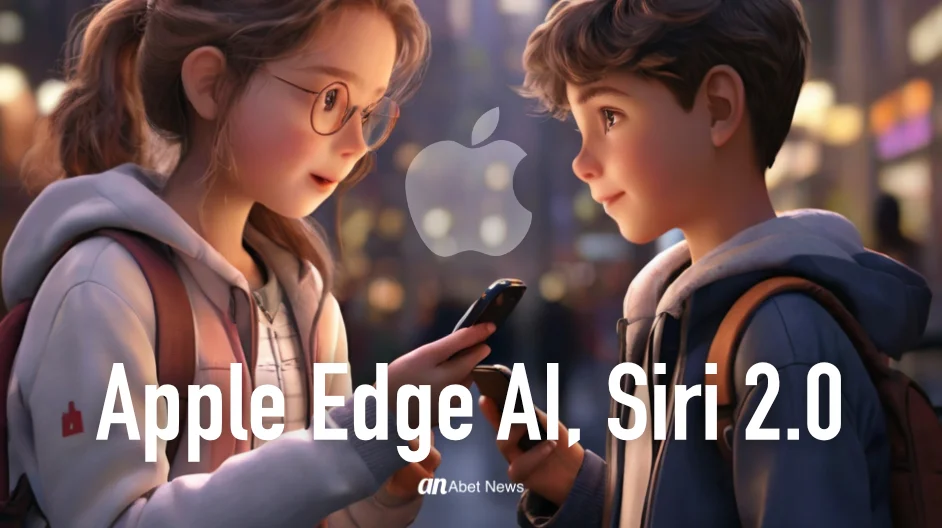Apple Edge AI, Siri 2.0

The Future with Apple’s Edge AI: Siri 2.0 Unveiling in 2024
In 2024, Apple is poised to seize the Edge AI landscape with advancements like Siri 2.0. Renowned for integrating AI into devices like Face ID and Siri, Apple’s focus on Edge AI on-device AI promises enhanced speed, privacy, and security. The upcoming WWDC 2024 is expected to unveil Siri 2.0 and a broader Generative AI-powered operating system, driven by the cutting-edge language model LLM, potentially elevating iPhone sales and Services revenue while prioritizing user experience and privacy.
Apple’s Dominance in Edge AI: Siri 2.0 and Beyond
Anticipating a shift towards on-device AI, Apple envisions running large language models, akin to OpenAI’s ChatGPT, directly on iPhones, iPads, and Macs. This move promises faster, more personalized, and secure AI experiences, sidestepping reliance on distant servers. Apple’s pursuit of a true personal digital assistant emphasizes data residency on the user’s device, distinguishing itself from cloud-based competitors like Amazon’s AWS and Microsoft’s Azure.
Siri 2.0 and On-Device AI: Apple’s Game-Changing Moves in 2024
2024 marks the anticipated mass adoption of consumer on-device AI, positioning Apple as a unified source of trust in the fragmented landscape of consumer-facing AI applications. Apple’s unique strength lies in its vertical integration of hardware, software, silicon, and services across diverse devices, from smartphones to computers and wearables like the Apple Watch and AirPods. As Apple ventures into augmented reality with the Vision Pro headset, its 2 billion strong user base cements its position as a key player in the AI-enabled device market.
Apple’s silicon, exemplified by the powerful M3 chips
Notably, Apple’s strategic investment in custom silicon, exemplified by the powerful M3 chips, provides control over the supply chain, increased efficiency, and reduced dependence on external manufacturers like Intel. The transition to Edge AI is further propelled by Apple’s 3-nanometer chip, optimized for swift inferences crucial for tasks like generating responses.

The Next Frontier: Apple’s Siri 2.0 and the Rise of On-Device AI
While Apple possesses vast data resources from its 2 billion devices and 1.2 billion users, the company grapples with maintaining its commitment to strict privacy controls. Balancing the potential of using personalized data to train AI models against privacy concerns poses a challenge. Apple’s approach, prioritizing privacy over insights, may mean its model lags behind foundation models from other companies. However, for consumers valuing privacy and simplicity, Apple emerges as a potential dark horse in the AI race.
Aeron Nersoya






2 comments on Apple Edge AI, Siri 2.0
Some might say, I already spend too much time with Siri 😋
Yes I can’t wait, it’s going to be amazing!